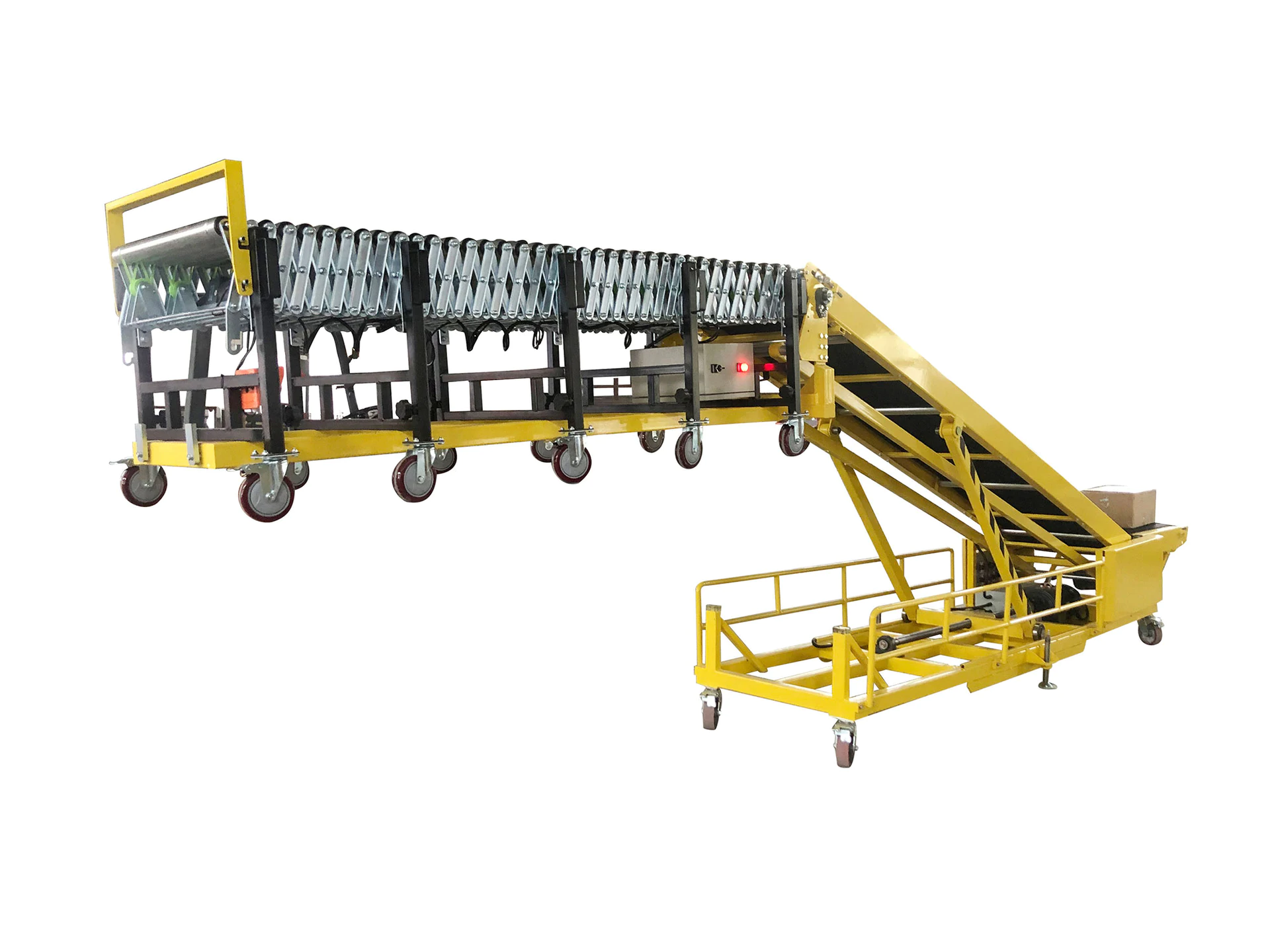YiFan Conveyor - Conveyor Manufacturer and One-Stop Solution Service Provider for Truck Loading Conveyor and Flexible Roller Conveyor System.
The Essential Role Of Conveyors In Material Handling
When it comes to moving materials efficiently in warehouses, factories, or distribution centers, conveyors are the unsung heroes of the industry. These indispensable systems have revolutionized the way businesses transport goods, streamline operations, and enhance productivity.
From the early days of manual transport to the sophisticated automated conveyor systems we see today, the evolution of conveyors in the material handling sector reflects a journey toward efficiency and innovation. Let's dive into why conveyors aren't just a part of the process; they're game-changers in the truest sense.
The Role Of Conveyors In Material Handling
In the bustling world of material handling, conveyors are more than just an addition to the machinery lineup—they're fundamental to the efficiency, safety, and productivity of operations across a myriad of industries.
From manufacturing plants to distribution centers, conveyors play a pivotal role in streamlining processes, reducing manual labor, and moving goods seamlessly through various stages of production and delivery. Let’s unpack the multifaceted role of conveyors and why they're indispensable in material handling.
Streamlining Operations and Enhancing Productivity
At their core, conveyors are designed to move items from point A to point B — but the impact of this simple function is profound. By automating the transport of materials, conveyors significantly reduce the time and manpower required for these tasks.
This automation not only speeds up production lines but also allows businesses to allocate human resources to more critical, value-added activities. It’s not just about doing things faster; it’s about doing them smarter.
Consider a pallet conveyor in a large warehouse. Without it, workers would have to manually transport goods, a process that’s time-consuming and prone to errors. With a conveyor, however, goods move quickly and consistently, ensuring that products are where they need to be, when they need to be there. This reliability is key to maintaining a smooth operation, meeting production deadlines, and fulfilling orders with efficiency.
Improving Workplace Safety
The role of conveyors in enhancing workplace safety cannot be overstated. Manual handling of materials is fraught with risks, from minor injuries due to repetitive strain to more serious accidents involving heavy lifting.
Conveyor systems mitigate these risks by taking on the heavy lifting themselves. This not only reduces the physical strain on workers but also minimizes the chances of workplace accidents, leading to a safer, healthier work environment.
Maximizing Space Utilization
Space is a premium resource in any facility, and maximizing its use is crucial for operational efficiency. Conveyors excel in this aspect by optimizing the movement and storage of goods in ways that manual methods cannot match. Overhead conveyors, for example, utilize unused vertical space for material transport, freeing up valuable floor space for other uses. Similarly, spiral conveyors provide a compact solution for elevating products without the need for extensive ramp systems.
This ability to maximize space not only enhances operational efficiency but also contributes to a more organized and functional work environment. By reducing clutter and improving the flow of goods, conveyors help create a workspace that is conducive to productivity and efficiency.
Scalability and Flexibility
As businesses grow and evolve, so do their operational needs. Conveyors offer the scalability and flexibility required to meet these changing demands. Modular conveyor systems, in particular, can be easily expanded or reconfigured to accommodate new products, processes, or production volumes.
This adaptability ensures that businesses can respond quickly to market changes, seasonal fluctuations, or expansion opportunities without significant disruptions to their operations.
Selecting The Right Conveyor For Your Material Handling Needs
Selecting the right conveyor for your needs starts with a deep dive into your material handling requirements. This crucial step involves understanding the specifics of what you need to move, including the size, weight, and type of materials, as well as the required speed and route of transport.
Assessing Material Handling Requirements
Choosing the right conveyor starts with a clear understanding of your specific material handling needs. It's about identifying the types of materials you're moving, the volume, the environmental conditions, and the distances involved. This foundational step ensures that the conveyor system you select is perfectly aligned with your operational goals.
Considering the Total Cost of Ownership
Investing in a conveyor system is not just about the initial purchase price. It's essential to consider the total cost of ownership, which includes maintenance, energy usage, and the potential for upgrades. A system that might seem expensive upfront could offer significant savings and benefits in the long run.
The Importance of Customization
One size does not fit all when it comes to conveyor systems. Customization is key to ensuring that the system you choose fits your unique operational needs like a glove. From the speed of the conveyor to the type of material it's made from, every detail matters in crafting a solution that's just right for you.
Vendor Selection and After-Sales Support
Finally, the success of your conveyor system heavily relies on the vendor you choose. It's not just about the quality of the equipment but also the level of after-sales support and service. A reliable vendor will provide comprehensive training, maintenance, and support, ensuring that your conveyor system continues to run smoothly for years to come.
Conclusion
Conveyors are more than just mechanical systems; they're the lifelines of modern material handling operations. Their ability to enhance efficiency, improve safety, and maximize space utilization has made them indispensable in today's fast-paced industrial landscape. Assess your needs, explore your options, and take the first step towards transforming your operations. With the right conveyor system in place, the possibilities are endless.

Get in touch with us
QUICK LINKS
PRODUCTS
CONTACT US
E-Mail : sales01@yfconveyor.com
24 Hour Hotline : +86 13958241004
Add: No.77,Heyi Road,Gulou Street,Haihu,Ningbo China












